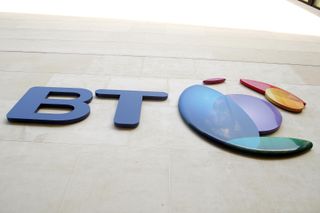BT to cut 10,000 jobs
Blaming its Global Services division for bringing the rest of the group down, the telecom giant says it will cut 6,000 contractor roles and 4,000 BT-based roles by March 2009.

BT will cut 10,000 jobs by the end of this financial year, after reporting a weak third quarter, which saw the firm weighed down by its struggling Global Services division.
The majority of the cuts will be "indirect workers" those supplied by agencies, or working as contractors, as well as offshore employees.
The firm employs some 160,000 people globally. Of those, 50,000 are such indirect staff, while 110,000 are staff directly employed by BT.
A BT spokesman told IT PRO that 6,000 of the jobs being cut are those indirect jobs, which are based around the world.
However, the remaining 4,000 will be direct roles. Of the 115,000 direct roles the company has, 80 per cent of them are based in the UK.
Some 4,000 jobs have already been cut - mostly indirect roles - leaving the remaining 6,000 positions to be cut from a mix of indirect jobs "peppered around the world" and direct roles with BT, many of which will come from the UK.
The spokesman noted that thousands of direct staff leave each year, so the move is more about BT not replacing a large number of those leavers, meaning the reduction will be largely achieved through natural turnover, he claimed.
Get the ITPro. daily newsletter
Receive our latest news, industry updates, featured resources and more. Sign up today to receive our FREE report on AI cyber crime & security - newly updated for 2024.
He noted that as BT's "number one priority" is customer service, a lot of the jobs will be in background roles including IT support.
For the most recent quarter the firm's second of its financial year BT reported an 11 per cent fall in profit and a three per cent fall in earnings.
The blame for the weak quarter was placed squarely on the troubled Global Services unit.
Chief executive Ian Livingston said: "Three out of our four business units, BT Retail, BT Wholesale and Openreach are delivering on or ahead of target. But profits in BT Global Services are simply not good enough and we are taking decisive action to put matters right."
At the beginning of the month, BT Global Services' head Franois Barrault stepped down following a negative trading update, and was replaced by Hanif Lalani.
Livingston said revenue across the group for the year would be positive, but group EBITDA (Earnings Before Interest, Taxes, Depreciation and Amortization) would see a "small decline."




